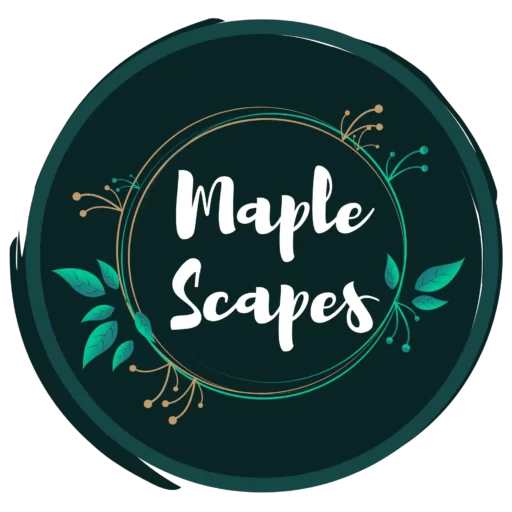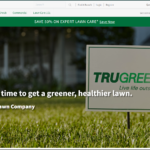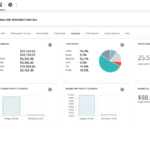Starting a New Hampshire landscaping business is like planting a garden; you need the right groundwork to flourish.
From registering your business to determining if you need to apply pesticides, there are a few official steps to ensure your lawn care in New Hampshire venture is both compliant and above board.
Whether you’re trimming shrubs or managing entire estates, understanding licensing requirements such as those for Plant Dealers/Landscapers and pesticides—helps you build trust, stay compliant, and let your green thumb truly shine in landscaping Nashua NH.
Licensing Requirements for a Landscaping Business in New Hampshire
a. Plant Dealer & Landscaper License
If you’re handling nursery stock buying, selling, or storing plants you may need a Plant Dealer/Landscaper License from the New Hampshire Department of Agriculture, Markets & Food (NH DAMF) for landscaping Manchester NH.
Specifically:
- If you hold nursery stock, even temporarily, you must obtain this license. It’s valid annually, running from January 1 to December 31. Cost of the license? A modest $25 per year.
- Some exemptions apply: For example, if your total gross sales of rooted plant material are under $3,000, or you don’t store or import out-of-state nursery stock, you might not need the license.
- The application is via the “Plant Dealer / Landscaper Application” form, and once approved, you’re expected to post the license at each location.
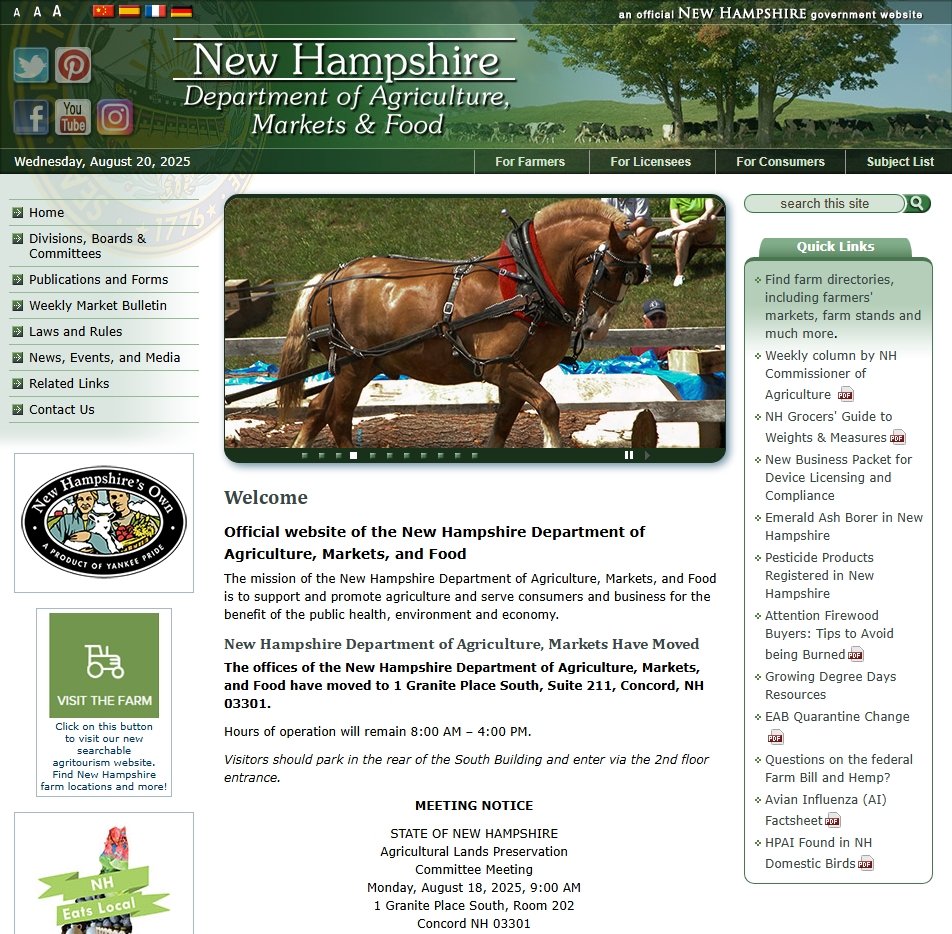
For more information regarding the license, visit the official website of New Hampshire Department of Agriculture Markets and Food.
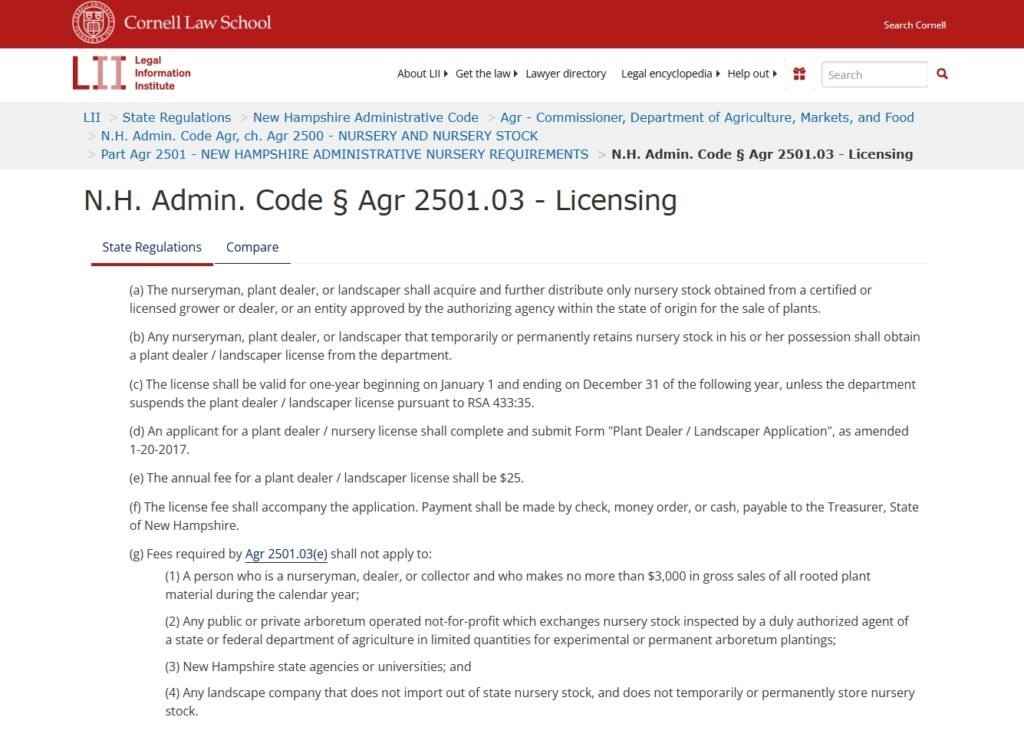
You can also visit the New Hampshire Legal Information, Cornell Law School, for getting legal information.
This license ensures that anyone you source nursery stock from is also certified or licensed, making the entire supply chain accountable and healthy for lawn care NH.
b. Pesticide Applicator Licensing
If your landscaping work involves managing pests, such as spraying herbicide or managing invasive plants, you’ll need to look into pesticide applicator licenses:
Private Applicator Permit: If you’re applying pesticides on your own property or someone else’s property in exchange for non-cash exchanges, you might need this. Some general-use products require only an annual report, while restricted-use products require an exam, training, and reporting for landscaping Derry NH.
Commercial Applicator License (for hire): If you’re applying pesticides on others’ properties for compensation, this includes lawns, gardens, or even public spaces, you definitely need a Commercial Applicator License for landscapers Salem NH.
Pesticide Dealer License: If you plan to sell, distribute, or even hold restricted-use pesticides, you must be licensed as a dealer.
Renewals and Continuing Education
Commercial Applicators licenses must be renewed every 5 years and complete 12 continuing education credits per category licensed.
Private Applicators require 15 credits over 5 years and renewal every 5 years.
Do You Need A Pesticide Applicator License?: The difference between a Private and Commercial License, a General-Use and Restricted-Use License, and a Pesticide Dealer License.
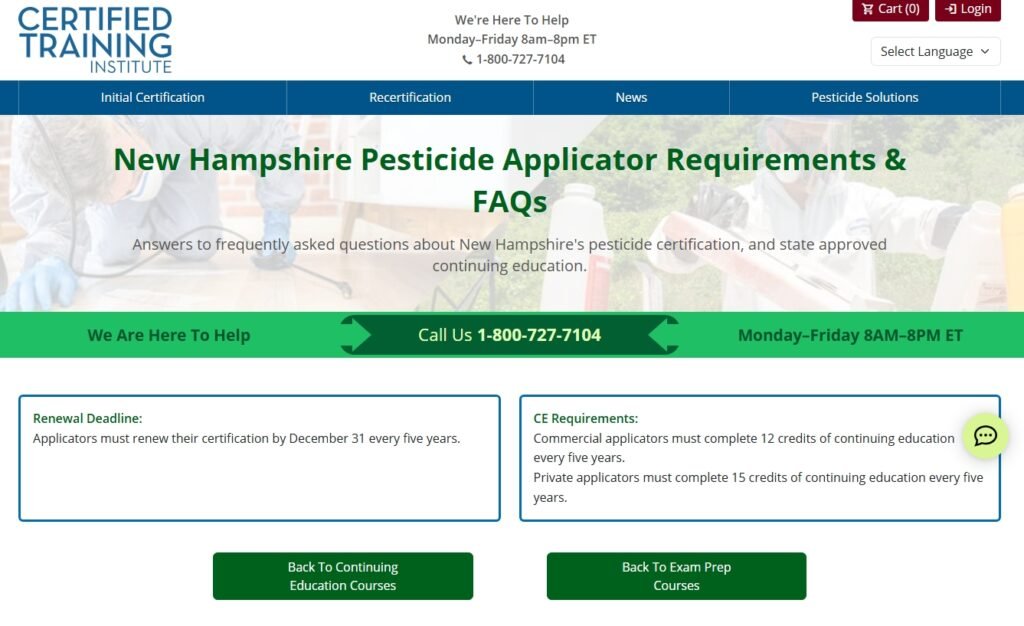
New Hampshire Pesticide Applicator Requirements and FAQs
These requirements make sure landscapers aren’t just green-thumbed but also pesticide-savvy, especially when it comes to safety and the environment, which is essential for New Hampshire landscaping.
c. Certification: NHLA Certified Landscape Professional (NHCLP)
While not a government license, the NHLA Certified Landscape Professional (NHCLP) is a respected certification from the New Hampshire Landscape Association. It’s optional, but highly valuable for credibility in lawn care in New Hampshire.
To earn NHCLP, you need to keep in mind certain guidelines:
- You need to have documented experience: either 2,100 hours in the landscaping industry, or 1,400 hours+one year of post-secondary horticultural education.
- Pass an exam (written and plant ID exam, which are offered in March and September) and pay a fee of —$120 (for members), $150 for non-members.
- A certification manual (on USB) is included with the exam fee or available separately for $30.
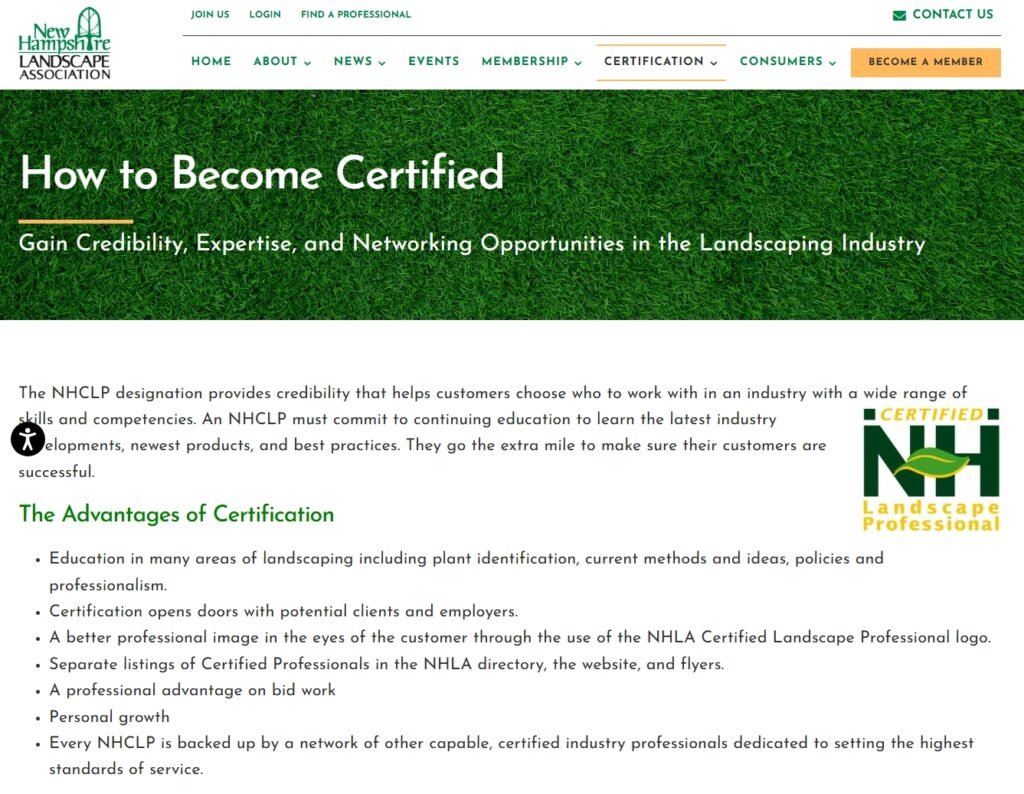
You can visit the official website of NHLA to know more about NHCLP Application for Examination.
This badge not only boosts professionalism but opens networking doors, adds credibility to bids, and helps you stand out in landscaping nashua nh.
d. Business Registration & Local Permits
New Hampshire doesn’t require a general state-level business license for most tasks.
However, here are few things to keep in mind:
- You should register your business structure (LLC, sole proprietorship, etc.) with the New Hampshire Secretary of State, especially before applying for other licenses.
- Your local city or town may require permits or registration, such as zoning clearance or a general business permit. It’s always a good idea to check your town clerk’s office.
- Finally, don’t forget insurance—public liability, property damage, bodily injury coverage, and possibly workers’ compensation if you employ help, to protect both you and your clients.
Here’s the New-Farmer-Toolkit, a complete pdf guideline for all the new farmers in New Hampshire.
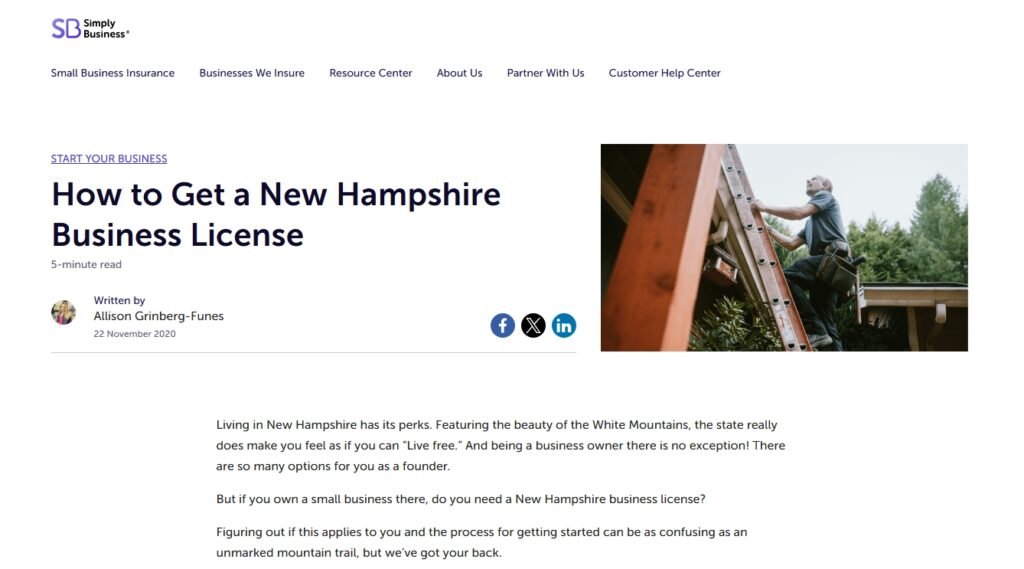
How to Get a New Hampshire Business License
Landscaping Associations in New Hampshire
If you want to stay connected, sharpen your skills, and network with other professionals, the New Hampshire Landscape Association (NHLA) is your go-to hub for landscaping manchester nh.
What do NHLA offer: NHLA provides training workshops, certification programs (like the NHCLP), industry updates, and events where landscapers can meet and exchange ideas for lawn care nh.
Why to join NHLA?: Membership helps boost credibility, gives you access to job postings, professional development, and a community of experts who know the challenges of landscaping in New Hampshire’s unique climate, including landscaping derry nh.
Certification spotlight: Their Certified Landscape Professional (CLP) program is one of the most respected credentials in the state (details already mentioned above in Section 2c).

Where to find them: You can find more information about the licenses on the official website of New Hampshire Landscape Association – NHLA
Being part of NHLA is like having a supportive “green family” that helps you grow beyond just meeting legal requirements it puts you in touch with people who share your passion for transforming New Hampshire’s landscapes, including landscapers salem nh.
Getting these licenses and registrations in place isn’t about red tape; it’s about planting your business on firm, legal soil. Then you can grow with confidence, credibility, and a deep sense of responsibility toward your clients and New Hampshire’s natural beauty through New Hampshire landscaping.
Looking to expand your landscaping knowledge further? Check out our guide on New Mexico landscaping to stay compliant and grow your business across the state.
Do I need a license for New Hampshire landscaping?
Yes, many New Hampshire landscaping businesses require a Plant Dealer/Landscaper License or pesticide applicator permit to operate legally.
What licenses are needed for lawn care in New Hampshire?
Lawn care in New Hampshire businesses applying pesticides or fertilizers need a Commercial or Private Applicator Permit depending on their services.
Are there local licensing requirements for landscaping Nashua NH?
Yes, landscaping Nashua NH contractors must follow state licensing rules, including plant dealer licenses and pesticide applicator certifications if applicable.
How can landscaping Manchester NH professionals gain credibility?
Landscaping Manchester NH businesses can boost credibility through NHLA certification programs and proper state licenses.
Do landscapers Salem NH need additional permits for plant sales?
Yes, landscapers Salem NH selling or storing nursery stock require a Nursery/Plant Dealer License from NH DAMF.
